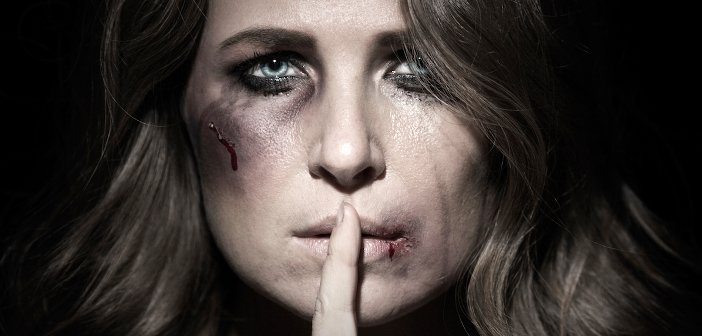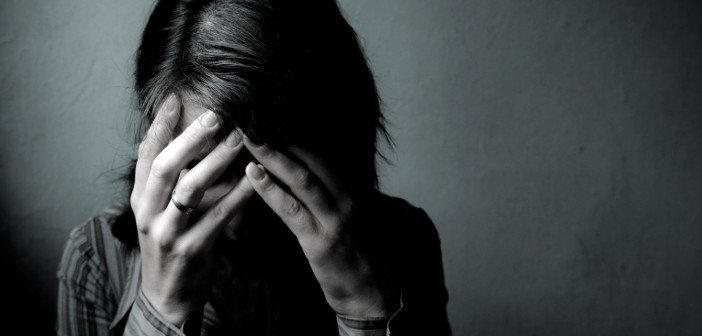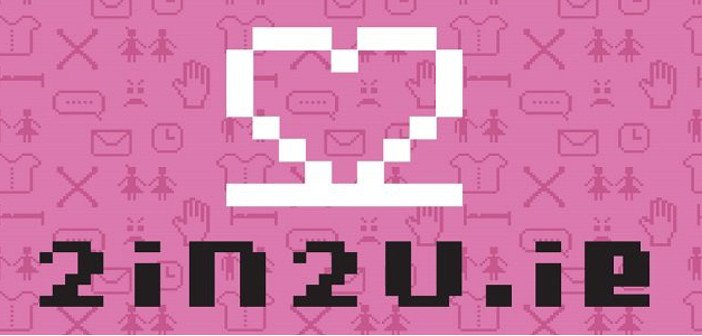Let’s Face Up to Domestic Abuse
1 in 5 women in Ireland experience domestic abuse. That’s according to Women’s Aid – a charity dedicated to stopping violence against women and children, and providing help and support to those who are directly affected by abusive relationships. Since 2008, there has been a 31% cut in funding to the organisation, leaving countless young women without the vital assistance and protection they may need to remove themselves from toxic relationships.

In the lead up to the general election, Women’s Aid released a doorstep card ensuring that voters know exactly what questions to ask their local candidates about combating domestic abuse. The card – which can be found here – details Women’s Aid’s reduced funding, emphasises the growing demand for support services, and also declares the current laws existing to protect those suffering in abusive relationships as unfit. The Domestic Violence Act 1996 states that in order to obtain a safety order the victim must either be a spouse of the offender, or have lived with them for a period of at least six months. This not only means that couples who are not cohabiting are outside of the law, but also assumes that violence in relationships only occurs in person. An assumption that almost everybody knows is not the case.
The constant criticism that the 50 Shades of Grey franchise undergoes for explicitly romanticising controlling relationships, and recent events like UCD200, prove that the term ‘domestic abuse’ cannot be reserved only for those in long term relationships who see each other every day. Despite the college’s inquiry yielding no evidence of a Facebook chat dedicated to sharing non-consensual nude photos of women (even after multiple students admitted involvement), the case led to a nationwide debate surrounding consent, ‘revenge porn,’ and online harassment. The latter being an issue often ignored in discussions concerning violent relationships.

Just before Valentine’s Day, Women’s Aid launched #2in2u – a campaign designed to highlight the link between technology and modern abusive relationships. It focuses primarily on emphasising the early warning signs of dating abuse, such as invasive or controlling behaviour like shaming, monitoring whereabouts, or the reading of private texts or online messages. According to the group’s Director, Margaret Martin, 2in2u exists to show young women the difference between safe and sinister behaviour. The campaign’s website also has a relationship check page, where participants are asked ten questions to determine whether or not their relationship is healthy.
The 2in2u Relationship Health Check explores subtler forms of control, which can be warning signs of further abuse. We know the campaign works. Last year, we had over 17,000 visits to the 2in2u.ie website with the majority of visitors taking the Relationship Health Check.
Not only does 2in2u urge women to recognise that “if it feels wrong, it probably is,” but it also provides a comprehensive list of what constitutes dating abuse. From forced isolation from friends and controlling behaviour, to physical and sexual abuse, the site allows its visitors to ensure that their own relationship is healthy and safe. And if it isn’t, the group are available to talk 24 hours a day, 7 days a week.

Although the 2in2u campaign focuses specifically on women, male domestic abuse victims are also in desperate need of care, support, and resources. A study conducted for the National Crime Council found that 15% of women and 6% of men suffer from severe domestic abuse in Ireland. That’s somewhere in the region of 213,000 women and 88,000 men who have been victims of violent relationships in their lifetimes.
While amending domestic abuse legislation does not appear to be a red line issue for many general election candidates, this does not mean that the public have been reticent in their discussion. Hozier’s recently released video for his song Cherry Wine calls on everybody to #FaceUpToDomesticAbuse and the damaging effects it causes families, relationships, and even whole communities.
[iframe id=”https://www.youtube.com/embed/SdSCCwtNEjA” align=”center” mode=”normal” autoplay=”no” maxwidth=”750″]
The video depicts Saoirse Ronan as a woman directly affected by physical abuse, while the song itself tells the story of a man in the throes of a violent relationship. All downloads of the single are to be donated to various domestic abuse charities around the country – many of which received very little private funding, and rely solely on volunteers or individual donations.
It is for this reason that groups like Women’s Aid are advocating for the refunding of their organisation. Thousands of people around the country are affected by domestic violence every year, and yet the funds to ensure that each and every one of these people remain safe do not exist. In 2014, women seeking shelter from violent relationships were denied refuge 14 times per day. The year before that, 3,494 people were turned away from refuges because they were full. Between 2008 and 2012, there was a massive 109% increase in women being denied refuge, simply because there was nowhere to put them.
Charities like Women’s Aid, Safe Ireland, and many others are asking the successive government to face up to domestic abuse, recognise that violent relationships are not strictly physical, and to make adequate victim resources a reality. With hundreds of women suspected to be returning to abusive households every year, it’s time that this country made the protection of its citizens a priority.
